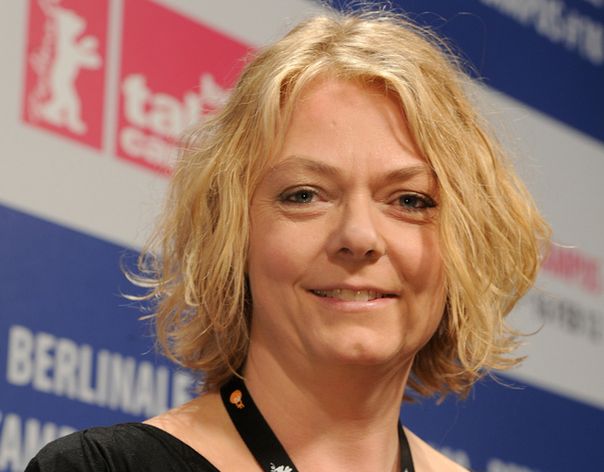Dancer in a Dark Editing Suite
An interview with Lars von Trier's editor Molly Malene Stensgaard, visiting the Berlinale Talent Campus for the panel "Directing Scripts, Editing Stories".

Molly Malene Stensgaard
Outspoken Danish director Lars von Trier could use the editing finesse of Molly Malene Stensgaard during his run-ins with the press, not just with his films. The gracious and soft-spoken Stensgaard has edited Trier’s highly regarded works including DANCER IN THE DARK, DOGVILLE and MELANCHOLIA. After appearing on a panel at this year’s Berlinale Talent Campus discussing the collaborative process between editors, directors and screenwriters, Stensgaard took time aside for an interview to explain how it’s the “editor’s responsibility to make the translation from writing to film.”
It’s often said that the best edits are the ones you don’t notice. Do you think that’s true?
No, and the opposite of that is not true either. The film is always the main thing to consider, and if it’s a film where a disturbing, visible language of editing is the right thing to do for the film, then it’s the right thing to do. However, for another film, you might not even recall seeing a cut afterwards. It completely depends on the film.
You mention “the language of editing.” Do you feel as though with Lars von Trier’s films you’ve developed your own distinctive language as an editor?
Because I’ve been working so much with von Trier, we have really tried to develop a continuity in the editing. But I think it’s important to distinguish that it’s not the editor’s language, it’s the film’s language. An editor having a language is not interesting. It’s the film that has the language, and you have to adapt to that. Always.
Are there any editing clichés you try to avoid?
Pointing out subtext and dialogue; I hate that. Such as when somebody says: “Oh I’m so angry”, when we can clearly see he’s angry. You don’t need to say it!
Isn’t that an issue with the script, or is it the editor’s duty to cut that out?
It’s definitely the editor’s job to cut that out. It’s also in the script, yes, and you need to be aware of that, but I feel that it’s the editor’s responsibility to make the translation from writing to film. There’s always a lot of lines that you don’t need to say anymore because you can see it in the expressions. You can’t always know that up front, so it’s up to the editor to pick up on it.
Is the control you have over time your greatest weapon as an editor?
Yes, I think time is a very big thing, but very much on a detail level. It’s the sense of time. For me, it’s very important to try and create moments on the screen. Moments that feel truthful; authentic. But also the shift between that to something that feels like it’s moving forward, feels efficient, is actually the great dynamic of filmmaking. That’s very important to work on in the edit: to make time stand still, and then to make it really move.


301 Moved Permanently